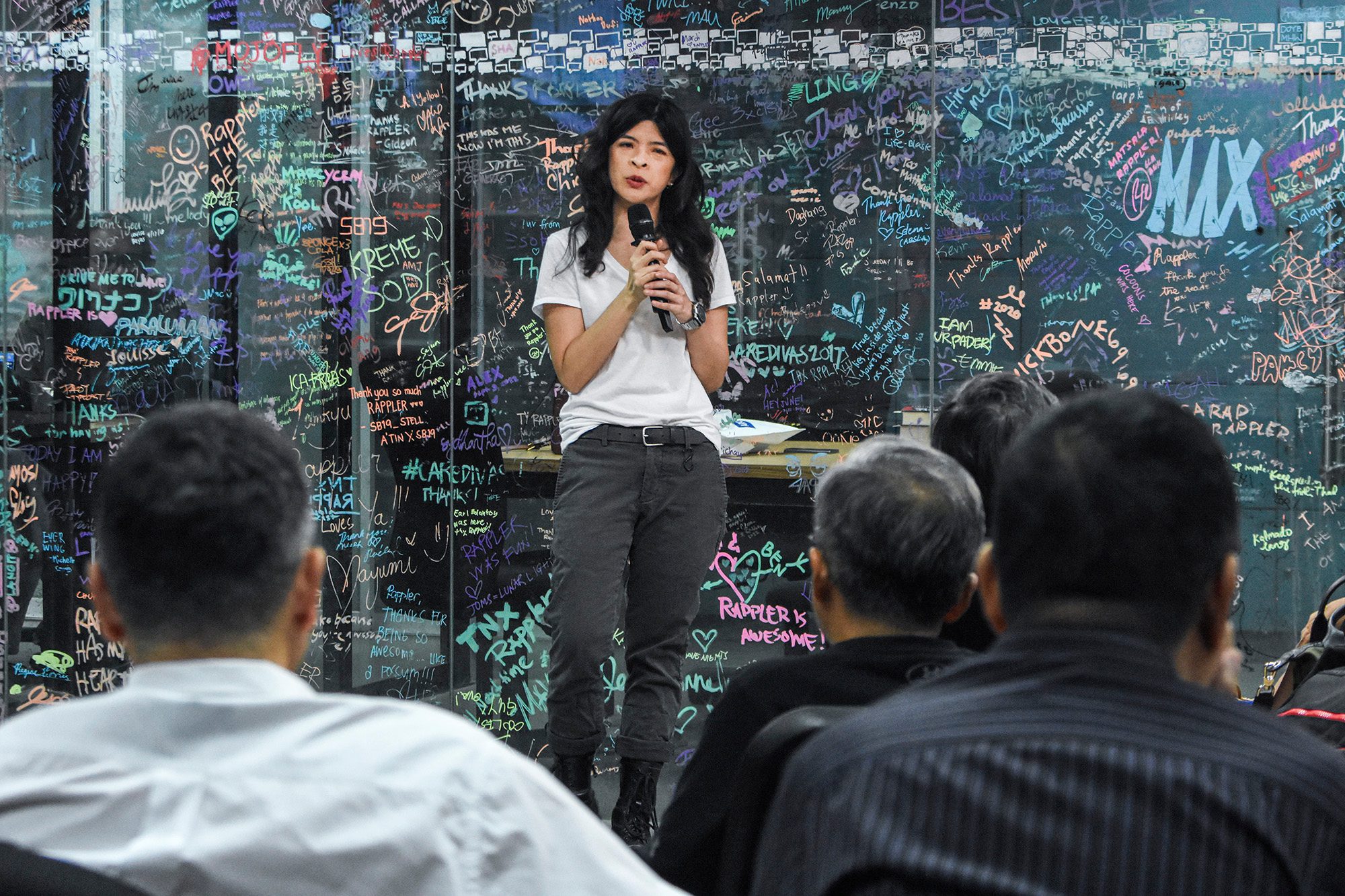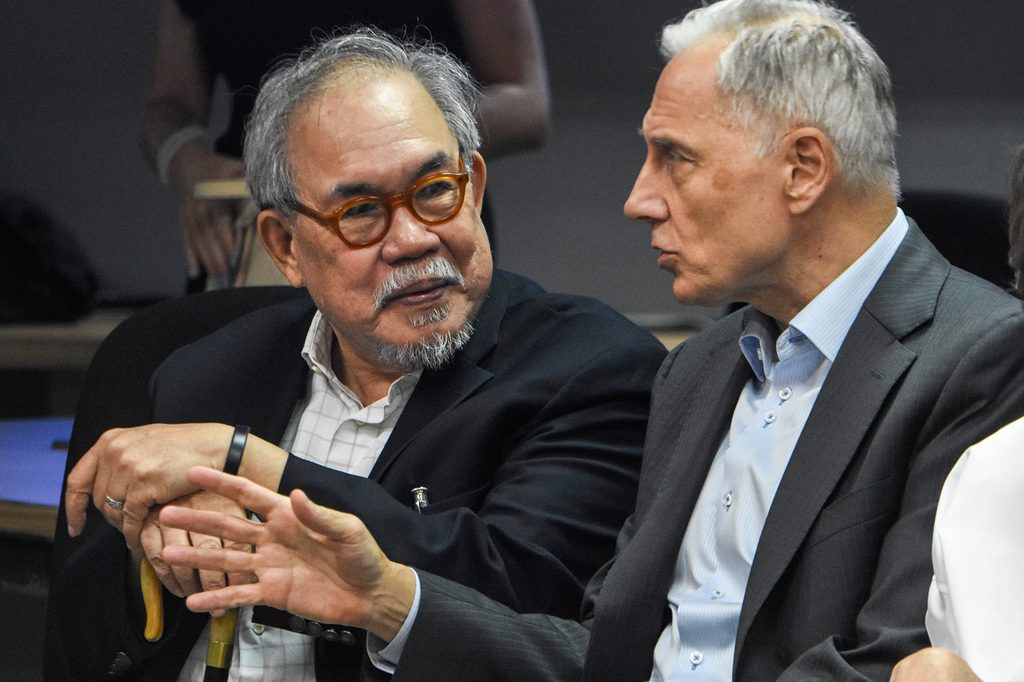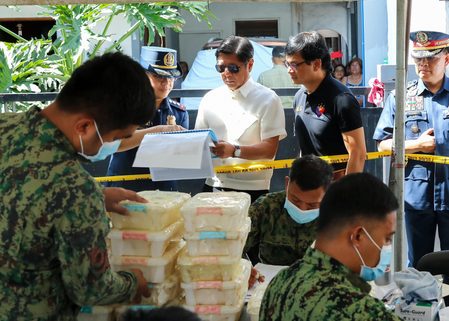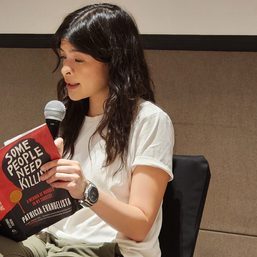SUMMARY
This is AI generated summarization, which may have errors. For context, always refer to the full article.

MANILA, Philippines – On Friday, April 19, journalist and author Patricia Evangelista returned to the Rappler newsroom as part of her tour for her critically acclaimed book Some People Need Killing: A Memoir of Murder In My Country.
Members of human rights and civic groups, the diplomatic corps, former and current government officials, and other guests attended the event where Evangelista, a trauma journalist, performed a monologue from her book. Evangelista was a former investigative reporter for Rappler, who covered human rights issues, including the drug war of the Duterte administration.
To zero in on the struggles of journalists covering human rights abuses, Evangelista sat down with her college professor, acclaimed author Butch Dalisay. They talked about the journalist’s writing process. As the conversation neared its end, Dalisay asked a question: Can people survive without hope?

“I had hoped to write a record. I can’t hope for justice; I can’t hope that people’s lives will get better by something I have written. But I did want to write a record,” Evangelista said.
Evangelista then explained the importance of journalists’ duty to keep a record.
“I hope to have honored the people who told the story. I hoped to have done it in a compelling fashion. And I believe in a record, I think that’s what I offer. So I hope to keep going on the record and as long as there are people in this room who keep telling the story, I think we have hope,” Evangelista said. “My faith is in journalism. Not that it will change the world, but it keeps a record of it, so we don’t forget.”
Evangelista’s book, which she launched in October last year, was named among the New York Times’ 10 Best Books of 2023, the New Yorker’s Best Books of 2023, and TIME Magazine’s 100 Must-Read Books of 2023. But beyond these accolades, the book was important for the victims of Duterte’s drug war and the families they left behind.
In the book, Evangelista retold her award-winning probe into the drug war with more details and context. The book also looked into Duterte, his language, and how the culture of impunity, in the context of drug war, had persisted in the last years.

On Marcos
“It is interesting to live in a country where we have to celebrate that no one died. As if that is not normal. I guess the terrible is still ordinary, so the fact of no death is suddenly special,” Evangelista said, after she was asked about President Ferdinand Marcos Jr. boasting that no one died in a recent big anti-drug operation.
Marcos made the statement after it was reported that Philippine authorities seized P13.3 billion worth of suspected shabu (which later went down to P9.4-billion after further inventory).
Human rights groups reacted to Marcos, lecturing him that a bloodless operation should be the norm, and not an exception. Groups also noted that under Marcos, the government’s drug war policy continues to exist. Marcos has yet to repeal or retract his predecessor’s memorandum that operationalized Oplan Tokhang, where cops were told they can “neutralize” resisting suspects.
Drug killings also continue under Marcos as there have been 621 drug-related killings under the current administration, as of April 15, based on the monitoring of Dahas Project. – Rappler.com
Add a comment
How does this make you feel?



![[Rappler’s Best] Patricia Evangelista](https://www.rappler.com/tachyon/2024/04/unnamed-9-1.jpg?resize=257%2C257&crop=486px%2C0px%2C1333px%2C1333px)








![[OPINION] Badoy’s red-tagging and freedom of expression](https://www.rappler.com/tachyon/2024/04/20240426-Badoy-red-tagging-freedom-expression.jpg?resize=257%2C257&crop_strategy=attention)
There are no comments yet. Add your comment to start the conversation.